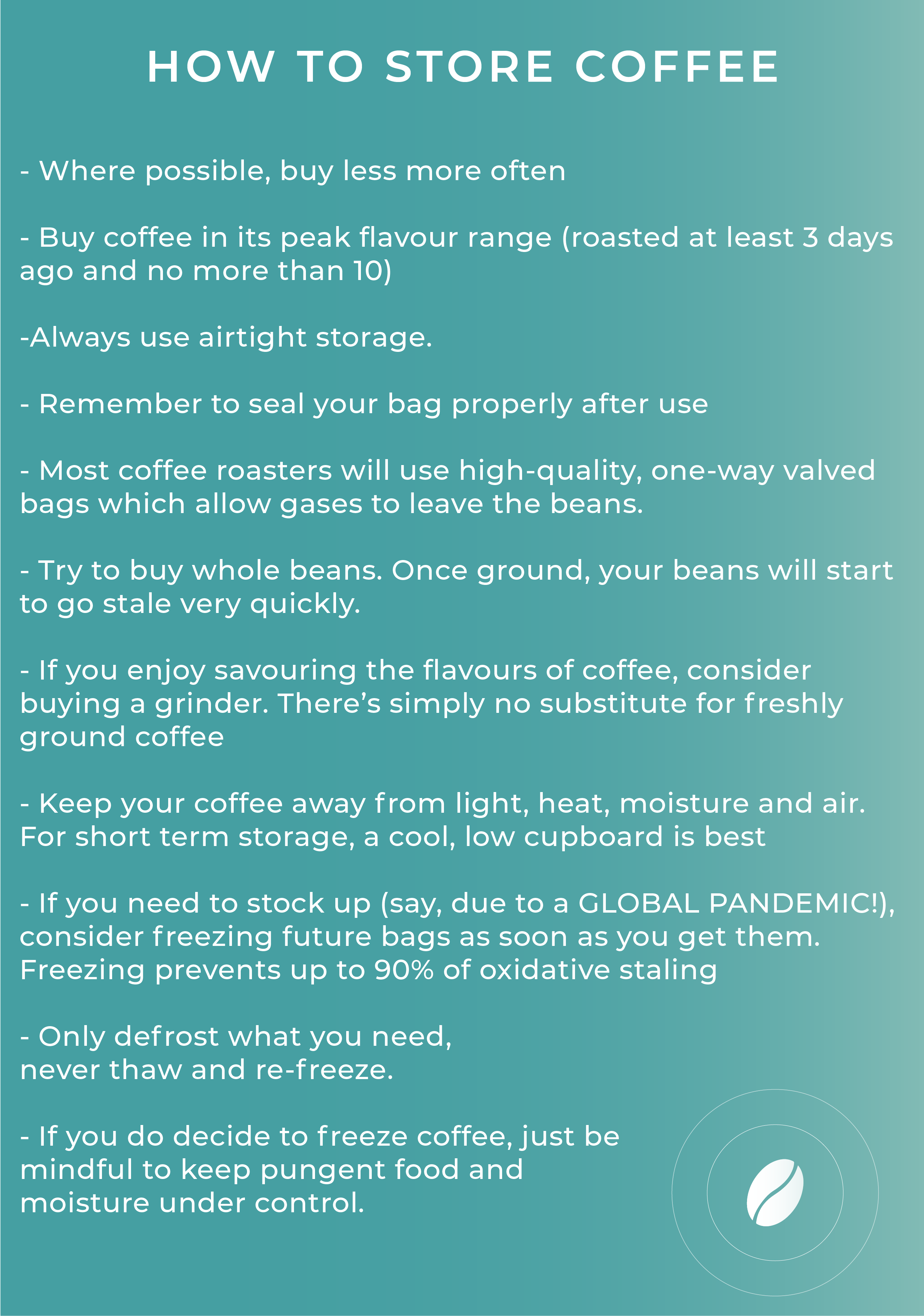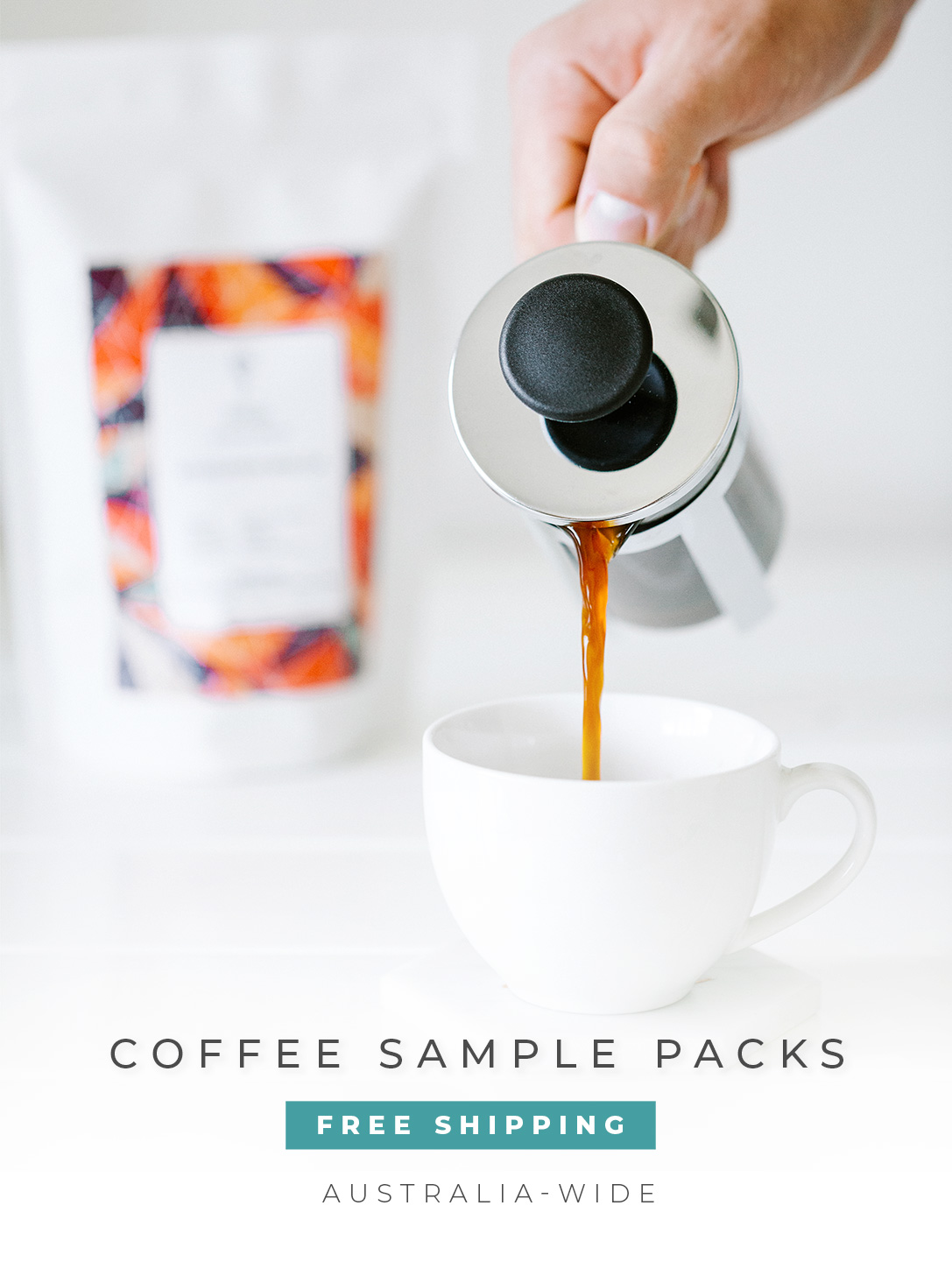How To Store Coffee At Home For Maximum Freshness
Posted by Andrew Scivens on 27th Mar 2020
Over many years of working within the coffee industry, I have found that one question comes up time and time again. Now, more than ever, it's one we should look at.
How should you store your coffee at home?
Naturally, the answer has changed over time as industry research has exposed the effects of different practices on the freshness of stored coffee. While the gradual staling of coffee is an inevitable process, when you understand how to store coffee properly, there are many things you can do to slow it down as much as possible. Normally, we recommend that you try to drink coffee that was roasted no more than 4 weeks prior, however, when times get tough and you need to keep a larger amount of coffee as fresh as possible for a long period of time, here's what you need to know.
The enemies of coffee
Coffee goes stale much faster when any of these elements are present:
- Air (oxygen)
- Heat
- Light
- Moisture
- Strong smells

This all boils down to the fact that, after roasting, coffee becomes much less chemically-stable. Then it becomes even less chemically-stable after grinding. Nuts and seeds are affected in a similar way.
This new state of chemical instability is what brings on staling process. The environmental elements above all act to increase the rate of staling, once it has begun. You may not know this, but once coffee starts to go stale, there is very little you can do to pause the process.
However, you can definitely extend the period of freshness before the staling process begins, to last long enough to get through the coffee you buy online.
*Pro Tip
The coffee storage recommendations listed here apply to every coffee drinker however you should probably be even more diligent with your storage practices if you like to buy:
- Darker-roasted coffee and/or
- Pre-ground coffee.
WHY COFFEE BEAN STORAGE IS SO IMPORTANT
ROASTING COFFEE
As green coffee beans are roasted, they undergo a significant state change which is characterised by less molecular stability. This process is well researched and there are many chemical reactions that take place. Some of these will impact the freshness and flavour of your roasted coffee and need to be kept under control.
The intense heat used while roasting coffee creates many by-products, one of which is carbon dioxide (CO2). The longer we roast it, the more gasses are created and the shorter time you have before you start to lose flavour.
DARK-ROASTED COFFEE
The most common roast level is espresso which is considered to be a medium to dark level of roasting. Very-freshly roasted coffee, (by our definition that means under 3 days-old) should definitely not be used in espresso and preferably not consumed at all. You can read all about why here.
You will find it to be extremely volatile when extracting because an excess of gas trapped inside the beans (primarily C02) has not had a chance to leave the beans. This results in obvious, big bubbles when extracting the coffee and a fairly unpleasant bitter flavour (the one you taste in soda water from carbonation) which will overpower the sweeter flavours present in the bean.
One-way valves play an important role in extending the shelf-life of roasted coffee as they allow the carbon dioxide to escape at a controlled rate. Once packaged in a bag with a one-way valve, roasted coffee will stay reasonably stable for about 5 weeks after the roast date.
Therefore, it should be common practice for roasters to “rest” the roasted coffee by storing it in barrels for up to a week before packaging.
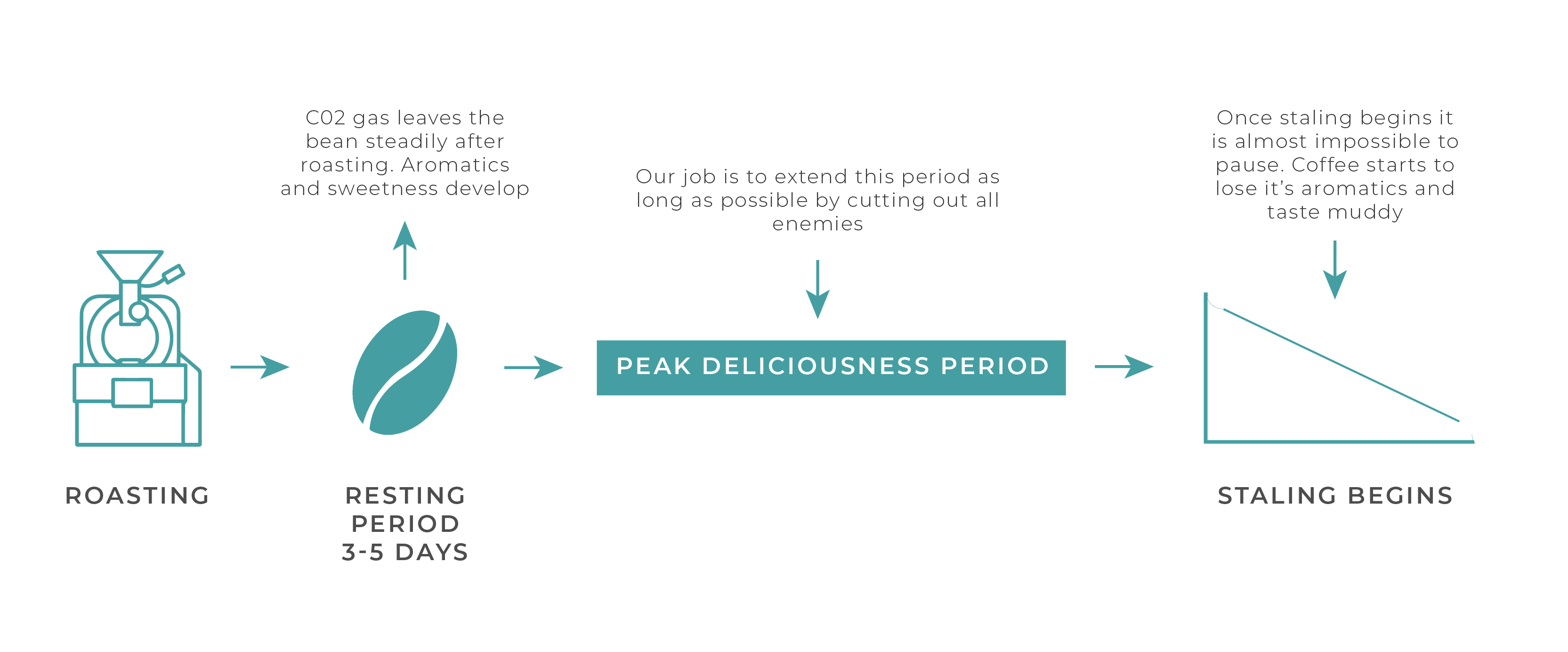
BEST PRACTICES FOR COFFEE BEAN STORAGE
The main variables that you want to control are:
- Air (oxygen)
- Heat and Light
- Moisture
The better you can keep these 3 to a minimum, the longer your coffee will taste good. This is simply because the presence of these variables increases the rate of chemical reactions taking place inside your coffee (like most reactions in the universe).
WHAT EXACTLY IS STALING?
You can think of the staling process as two changes happening to coffee at the same time.
- The first is the gradual loss of aromatics which contribute to the complexity and subtlety of freshly-roasted coffee (or bread, nuts or biscuits). These actually peak after approximately 4-7 days after roasting and then constantly subside.
- The second change is an opposite problem. Not only will coffee lose its most-delicious flavours, it also slowly accumulates new, semi-unpleasant ones! These are the result of interactions with moisture and oxygen.
Therefore, when storing coffee we want to prevent our coffee from losing delicious aromatics and introducing new, stale flavours.
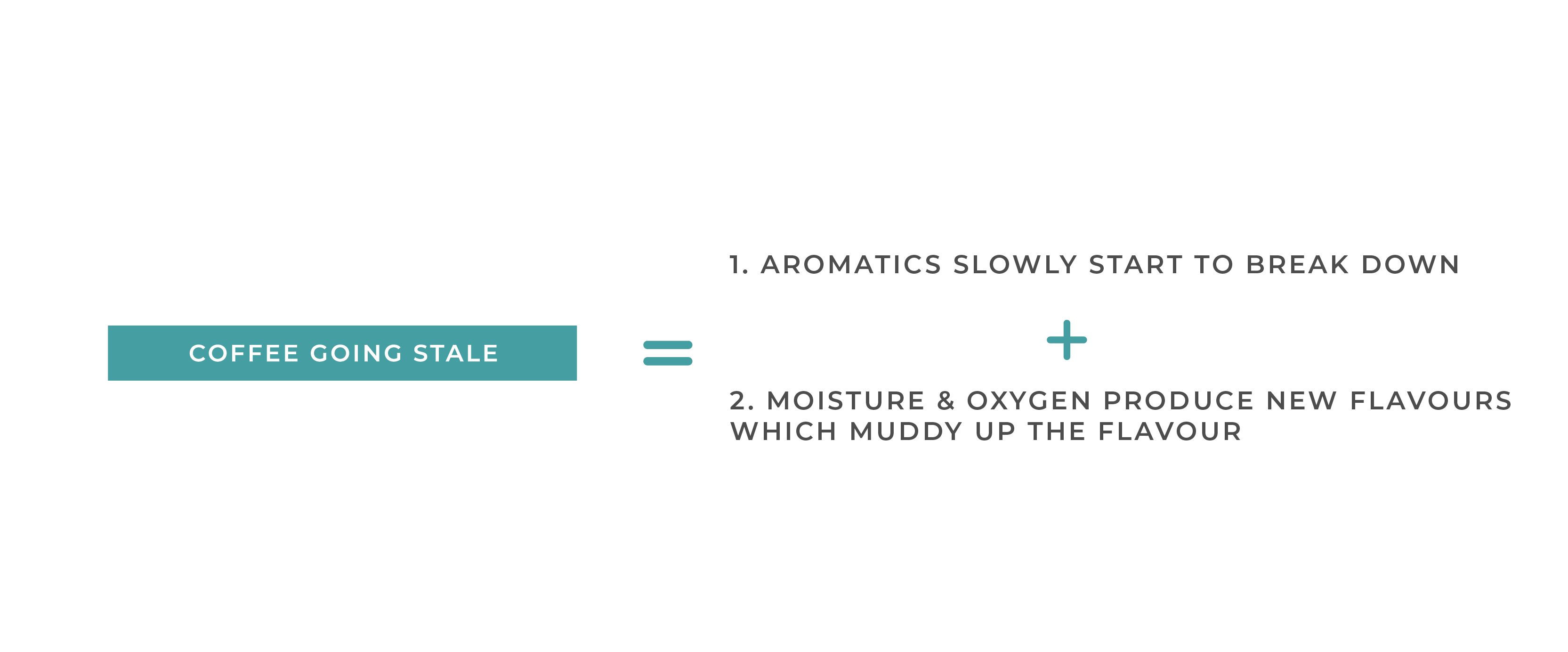
Air
The first factor we need to control once we have opened our bag of coffee is excessive exposure to air because it contains oxygen which leads to oxidation. To manage this, a coffee container that can vacuum-seal is ideal, but anything airtight will suffice. The bags that your coffee arrives in are also great for protection from oxygen as long as you are extra careful to seal them properly after opening.
Heat
The second is heat. If coffee is left in hot conditions, we will be faced with the same problem as before whereby chemical processes accelerate and coffee dries out. It is worth mentioning that light also accelerates the staling process.
* Since hot air rises, the best practice is to store coffee somewhere lower to the ground, like in a cupboard in a cool place.
Moisture
The third main enemy to coffee freshness is moisture or humidity which increases the rate of chemical reactions leading to the emerging "stale" flavours.
GROUND COFFEE
As with most conveniences, buying pre-ground coffee comes at a cost as well. Up until now we have been talking about whole beans. The situation changes dramatically once we grind coffee, breaking up the cellulose matrix that protects the best parts of coffee flavour from outside forces and increasing the surface-area to volume ratio of coffee matter to air.
The consequence?
Even when stored properly you won't expect to get more than a week out of your coffee before losing the majority of its richness and body. As always, you need to keep it away from environmental variables but you should take extra precaution to make sure that your container always has an airtight seal.
If you can justify the shipping or snag one of our deals on free shipping, your very best bet is to buy less, more often. This is how you can have your cake and eat it too (whatever that really means).
Can I Keep My Coffee In The Freezer?
So, be warned that this subject is lively one indeed! You will find two very opposing camps over the issue of fridge/freezer storage (get a life coffee nerds), and may find yourself a bit confused about what you should do if you want to store your coffee for a longer period.

The Problem
The main thing to know is that fridges and to a lesser extent, freezers, introduce two unwanted variables:
- Odours from pungent foods and
- An excess of moisture content in the air (condensation)
Obviously, we don't want to introduce moisture to the equation. However, the other thing you may not know is that coffee absorbs environmental smells! So if you made a big Panang Curry last night, guess what flavour your flat white will adopt next morning? Aha...
Longer-term-storage
The reason people don't recommend refrigeration is to protect coffee from contamination by smells and moisture. And it's true that most people who store coffee in the fridge or freezer don't use excellent, air-tight containers or bags for storage. Plus, it's common to combine this with the choice of pre-ground coffee which only compounds the issue.
BUT...
If you need to store coffee for a longer period of time and are using whole beans that are sealed well, freezing coffee is actually a very good option.
Freezing coffee decreases oxidation by more than 90%, slowing down the primary process which leads to staling and loss of "fresh" flavours. If you freeze your coffee right at the point of peak flavour development (5-7 days after roasting), you will actually preserve your coffee in the best way possible... provided you can protect the beans from the freezer's environment.
*Pro Tip
It's best to seperate your portions before you freeze the coffee so that you don't need to defrost it all at once. Only defrost what you need at a time. Creating portions also helps the whole mass to freeze more thoroughly. Make sure to store portions in air-sealed bags. Glad-bags/lunch-bags work really well for this. Make sure you try to manually remove as much air as possible from the bag (like a sleeping bag). Do not grind your coffee until it has thawed to room temperature because it won't grind properly when frozen.
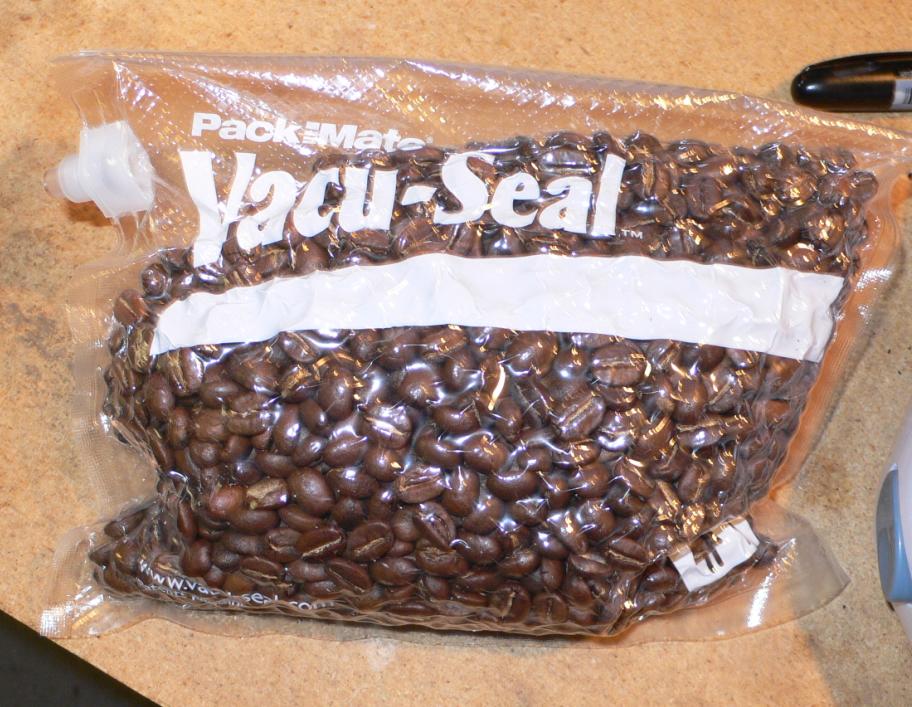
In Summary
By now you have discovered that delicious, fresh coffee will inevitably start to go stale. What's more, once the staling process begins, there is very little that we can do to prevent it. In saying that, there are several steps you can take at the beginning that will make an enormous difference in extending the life of your coffee and holding off the staling process for as long as possible.
